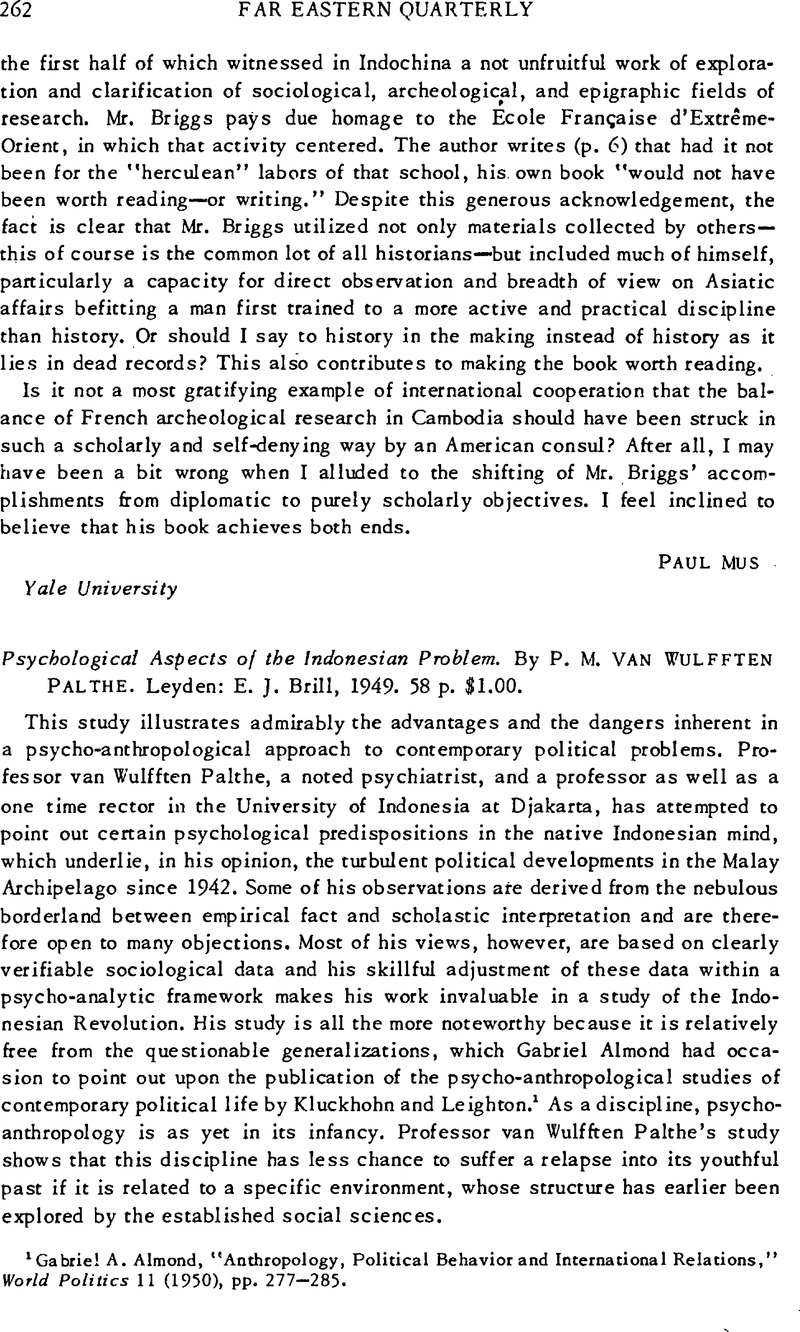No CrossRef data available.
Published online by Cambridge University Press: 23 March 2011

1 Almond, Gabriel A., “Anthropology, Political Behavior and International Relations,” World Politics 11 (1950), pp. 277–285.CrossRefGoogle Scholar
2 Mededeelingen der Regeering omtrent enkele Onderwerpen van algemeen Belang, 1920 (Batavia, 1920), pp. 5–7;Google ScholarDrewes, G. W., Drie Javaansche Goeroe's (Leyden, 1925),Google ScholarKroef, J. van der, “Prince Diponegoro,” Far Eastern Quarterly 8 (1949), pp. 424–450.CrossRefGoogle Scholar
3 The Report of the Parliamentary Commission (States-General) Dutch East Indies (The Hague, 1947), p. 23.Google Scholar
4 “Our nationalism and its substance: freedom, social justice and human dignity.” The Voice of Free Indonesia, April 27, 1946, p. 3.Google Scholar Compare also Sjahrir's Onze Strijd (Djakarta, 1946), pp. 5–8.
5 See the pronouncement of the former Lieutenant-Governor-General of the Netherlands East Indies, van Mook, H. J., Indonesie, Nederland en de wereld (Amsterdam, 1949), pp. 14–15Google Scholar : “…it is absolutely certain that Dutch policy since 1931 had become stratified in conservatism.… It has been the chief malady of this policy that during an entire century it was unable to visualize the inevitable emancipation of the Asiatic colonies. The resulting retardation in terms of the needs of the times, was not even so much to be found in the political institutions themselves, as in the insufficient absorption of Indonesians into the upper, controlling level of society.”
6 Van Baal, J., “De Westerse Beschaving als constante Factor in het hedendaagse Acculturatie-proces,” Indonesie, vol. 2 (1948), p. 129.Google Scholar
7 van Nieuwenhuijze, C. A. O., “The Dar-ul Islam movement in West Jave,” Pacific Affairs, vol. 23 (1950), pp. 164–84.CrossRefGoogle Scholar